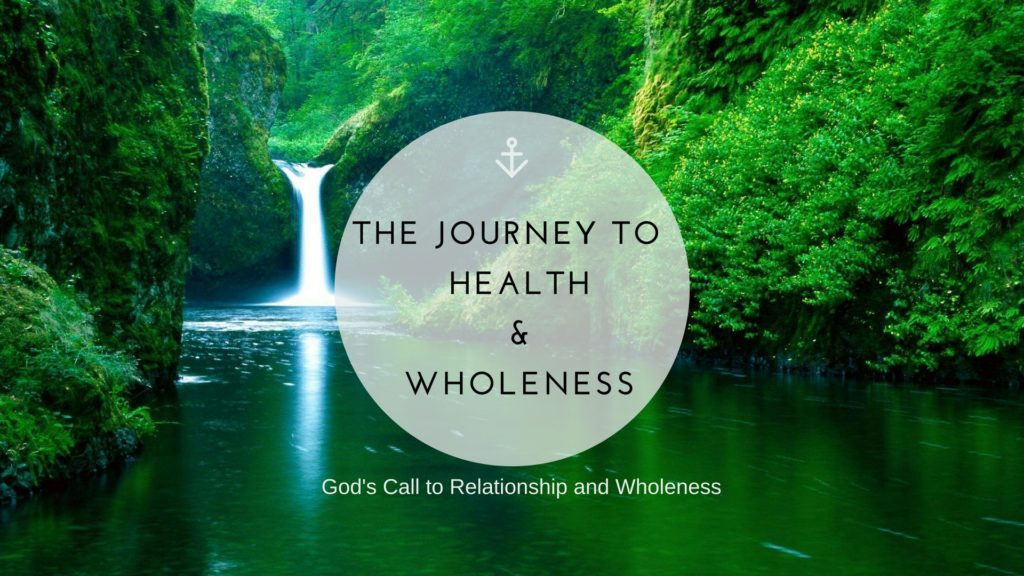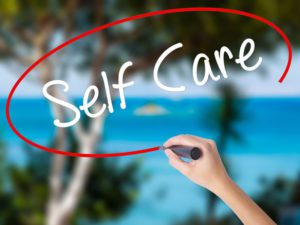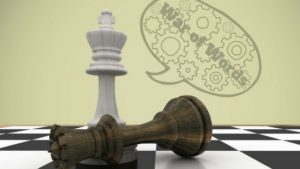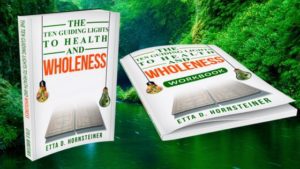There are so many books on health and wellness. There are so many different approaches, schools of thoughts, beliefs—that the journey to health and wellness can be a frustrating one for some. Moreover, health and wellness can become challenging when the church begins to tap into some of these ideas. As the church, we need a health and wellness approach that embodies our Christian tradition and biblical theology. This approach is The Ten Guiding Lights to Health and Wholeness—God’s call to relationship and wholeness.
Receiving God’s call to relationship and wholeness
After spending about a year writing my book The Ten Guiding Lights to Health and Wholeness, I felt like I had delivered a baby and was now unfit.
One day, I was in the gym on the treadmill. I decided to challenge myself and kick my speed up to 4.0. I know, for some of you who are fit that may seem like nothing. But to me, I felt like I had entered a 5k race—unfit and carrying the 10-pound baby on my back. I felt like I was running full speed but to anyone watching I looked as if I was just doing a light jog. I felt the weight of my entire body as I tried to move it. I told myself-just 2 more minutes of running at this speed. You just have to do this for 2 more minutes. My lungs felt like they were going to explode. God and I usually have conversations while I work out, so I said to him –just get me through these 2 minutes, which felt like eternity. It was now 1 minute and 30 seconds. I was so aware of myself breathing. I could hear myself grasping for air—panting. I was so glad that only a few people were in the gym because there was nothing pretty about looking like I was about to collapse. “God, only you can help me through this,” I said to Him. “If you help me through this, I know I can make it when life gets difficult.” I was down now to 1 minute. My feet kept going, but my mind was telling me my body needed to stop—she needs to stop—I need to stop. I tuned out the voice and turned my attention once again back to God. “We’re almost there, God.” Thirty seconds more. I was breathing harder. Yes, I’m almost there. I moved my arms faster as I realized we were coming down the home stretch. Yes, Lord, we did it!!!
Christ wants to partner with us. No matter what condition we are in, He wants to join and help us on our journey to health and wholeness.
Relationship
There are several good reasons why we need to exercise regularly and eat nutritiously. The best reasons are: (i) to stay healthy to prevent sicknesses, (ii) to be there for our families—our loved ones, and (iii) to enjoy life. These are all wonderful and honorable reasons to be healthy. But, today, I challenge you to explore this question: How can our journey to health deepen our relationship with God? How can walking, Zumba or resistance training deepen our relationship with Christ to know God more fully—to appreciate Him more? How can the taste of fresh vegetables and fruits help us to taste and see the goodness of God?
In other words, I would like to propose that as people of faith that we approach our health and wellness with the intent of knowing God more fully and loving God more deeply. For all of life is an invitation to deepen our relationship with God.
As the Body of Christ, we are called to manifest physically the spirit of Christ in the world today. We, the church, are not called to perfection like having a perfect body or being a perfectionist—never making a mistake. Rather as the church we are called to wholeness.
Wholeness
Our healing begins when we accept our wounded selves. We are not perfect; we are wounded. Our communities are wounded because we are wounded. Our journey to health and wellness must include healing and transformation. And our healing and transformation must include our health and wellness. What is good for the soul should be good for the body, and what is good for the body should be good for the soul.
God wants us to experience the fullness and richness of life. He wants us to experience his life in our bodies and minds and not just our souls. The whole is greater than its parts. This need to see and understand ourselves as integrated beings—body, mind, soul and spirit—is significant to our transformation.
We have to see all of life as spiritual. We have gathered here not to celebrate the body but to discover how we can improve the care of these temples. In learning how to care for ourselves, we must also include the transformation of our minds. We must examine how we think about exercise, how we think about food, how we think about our bodies and thus about one another. How we think about science and faith, the physical and the spiritual, and the secular and the church. We need a map to guide us—a blue print.
This map or blue print is The Ten Guiding Lights to Health and Wholeness. The ten guiding lights are the Ten Commandments. If you have looked at The Ten Commandments as a set of dos’ or do nots, then, I encourage you to look again. For in them, you will find God’s guiding principles for our health and well-being.

The Blue Print — The Ten Commandments
The First Commandment: “You must not have any other God but me.”
God cautions us to avoid addictions. Any person, place, thing or idea that usurps the position of God has the power to become a functional savior.
The Second Commandment: “You must not make for yourself an idol of any kind or an image of anything in the heavens or on the earth or in the sea.”
Though we have ignored and denied the body its proper place in our faith for a number of years, we have to be careful that we do not risk making it an idol.
The Third Commandment: “You must not use the name of the Lord your God thoughtlessly…”
We are God’s image bearers. We carry his name. This recognition should call our attention to and require us to be intentional and mindful about how we live in all aspects of our lives since we carry Christ’s branding.
The Fourth Commandment: “Remember to observe the Sabbath day by keeping it holy.”
Whenever God tells us to “remember” it means we will be inclined to forget. Busyness is the operative word of the day. We are simply busy people. Rest is an important component of our health. The body is recharged, repaired, and restored when we rest.
The Fifth Commandment: “Honor your father and mother.”
For many of us, healing at the emotional level begins here. No family is perfect and no family is healthy without forgiveness. The heart has to be healed. Many times, it is not what we are eating that is making us sick, but what’s eating us. Our roots run deep and they must be addressed on our journey to health and wholeness.
The Sixth Commandment: “You must not commit murder.”
Anger kills. Words spoken without thought—cold, toxic, brutal—can be as lethal as a weapon. Words can be spoken interpersonally or intrapersonally—what we say to one another or what we say to ourselves—our thought language. In neuroscience, it says it takes six positive thoughts to counteract one negative thought.
The Seventh Commandment: “You must not commit adultery.”
We are in a relationship with Christ and just like with any relationship, when we begin to look outside of our relationship for fulfillment, in this case—our spiritual relationship, we are in the red zone. What’s our ultimate source of comfort when we are stressed or discouraged? Is it a bag of chips or a bowl of ice cream? Where do we go to find comfort?
The Eighth Commandment: “You must not steal.”
In this relationship, the body ultimately is for God’s glory. As the body of Christ, God comes to live within us. Our hands, our feet, our mouths become His so that we carry out His work for His glory. C.S. Lewis said: “Don’t shine so others can see you. Shine so that through you, others can see Him.” Let us not be found at fault for stealing God’s glory.
The Ninth Commandment: “You must not testify falsely against your neighbor.”
The health of the community depends on our individual transformation. How we see ourselves determines how we treat one another. If we see God as our Father and we see ourselves as his beloved, then all others—our neighbors—should be recognized as our sisters and brothers, created in the image of God and are His beloved as well. We are called to be in community and to be authentic.
The Tenth Commandment: “You must not covet.”
In being in community, one of the greatest temptations we must resist on the road to health and wholeness is comparing ourselves to one another. Comparison of the body, for example, can lead us to ingratitude of our own bodies as we are sold every single minute of the day through the media a better body, a quick fix plan or a new diet on the market. Christ has called all of us to the table to dine with Him. No matter our race or heritage we are called to come to the table—loving one another, honoring one another as God’s beloved.
In summary, these are the three points I would like to leave with you:
- Build your health ministry for health and wholeness. I encourage you to use these principles in The Ten Guiding Lights to Health and Wholeness as a foundation to further develop your ministry of health.
- Focus on transforming the mind. Our minds must be changed. “Do not be conformed to this world,” Romans 12:2 says, “but be transformed by the renewing of your mind, that you may prove what is that good and acceptable and perfect will of God.” Action is important, but transformation is what will make it stick.
- Integrate the body, mind and spirit. It is not sufficient to understand each one separately. We must seek further to understand how they operate holistically. The spiritual life extends not only to matters of the soul but to the life of the whole human person.
Regular exercise and healthy eating should become our prayer—an opportunity to draw us closer to Christ. Walking, for example, should open all our senses to God’s presence all around us: to see the various colors of flowers, to smell the scent of Gardenia or citronella plants, to hear the sound of mellifluous birds, to feel the warmth of God’s sunshine on our skin. These are ways for us to discover the beauty of God and an opportunity to respond to him in awe fear or gratitude. So, the next time we take a walk, if we do not do so already, look, feel, taste and see the goodness of God all around us as we work out these marvelous bodies that belong to Him.









